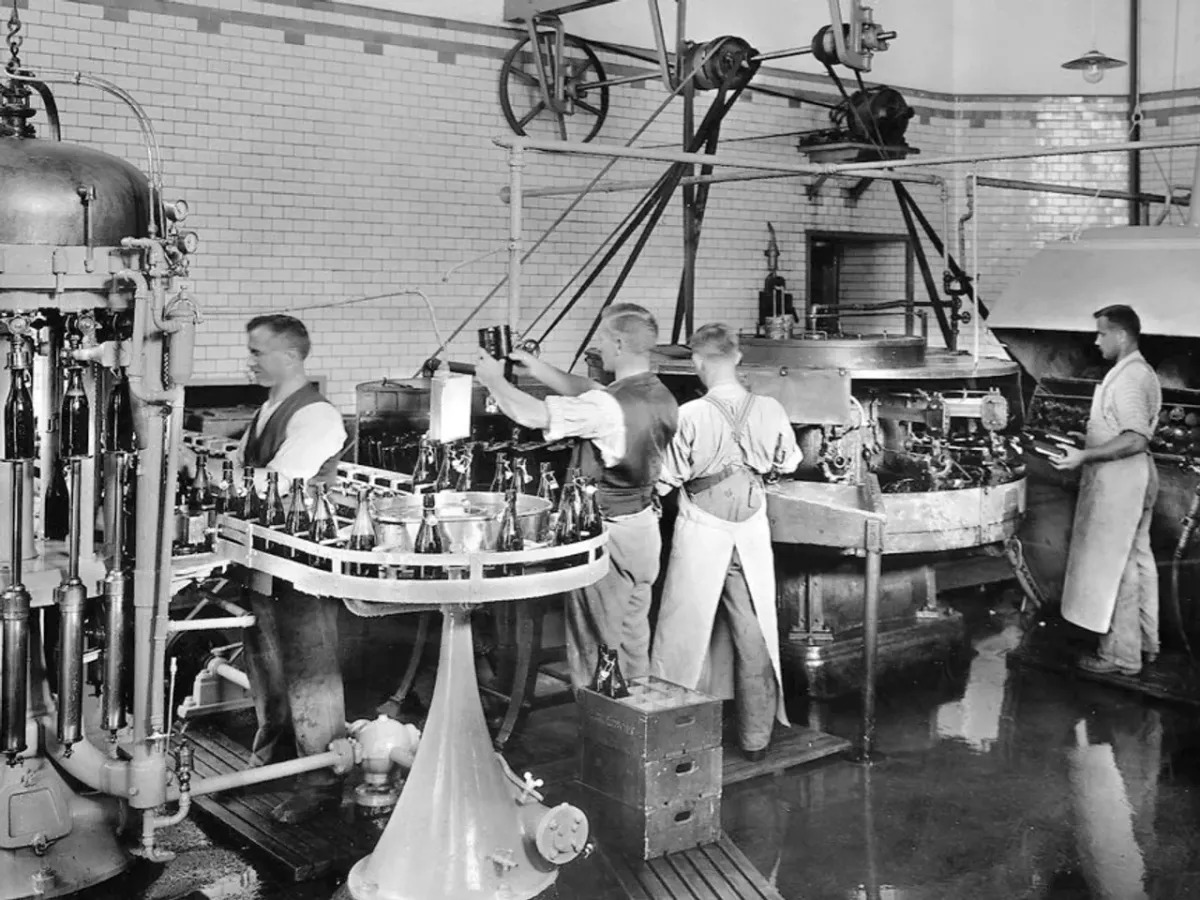
How Switzerland Lost And Regained Its Beer
-
Deutsch
de
Wie die Schweiz ihr Bier verlor – und wiedergewann
Original
Read more: Wie die Schweiz ihr Bier verlor – und wiederg
Français
fr
La disparition et le renouveau de la bière suisse
Read more: La disparition et le renouveau de la bière s
Italiano
it
Come la Svizzera perse – e riconquistò – la sua birra
Read more: Come la Svizzera perse – e riconquistò – la sua
Twenty-five years ago, on November 3, 2000, Swiss public television SRF announced news that would change Swiss brewing forever: Danish beer giant Carlsberg had taken over Feldschlösschen, then Switzerland's largest brewer, for CHF870 million ($1.08 billion).
The Swiss beer cartelUntil the early 1990s, the Swiss beer market was highly regulated. By 1935, almost all breweries had agreed not to compete with one another, according to the Swiss National Museum. Prices, advertising and delivery areas were set jointly. Even in restaurants, beer prices were standardised.
Rudolf Strahm, then a parliamentarian and later federal price supervisor, recalls:“Beer prices were agreed among suppliers for the whole of Switzerland. The same applied between breweries and restaurants. These agreements went so far that most restaurants were only allowed to purchase one type of beer, and not an entire range.”
Breweries also often held stakes in restaurants, through ownership or mortgages. The bond between brewery and tavern was therefore very tight. The beer cartel ensured stability but stifled competition, limited variety and kept prices high.
Dissolution and market liberalisationBy the 1970s, the system was beginning to crumble: beer consumption was falling, and politicians increasingly criticised the restrictive agreements. The cartel was officially dissolved with the Cartel Act of 1995, which opened the market to competition.
International players quickly moved in, triggering a wave of consolidation: many Swiss breweries could not survive on their own. Between 1994 and 2008, the country's major producers were sold – Calanda-Haldengut went to Heineken, Feldschlösschen-Hürlimann to Carlsberg, and Eichhof to other foreign owners.
Carlsberg buys Feldschlösschen Keystone/ Steffen Schmidt
Strahm recalls the impact on the hospitality sector:“Landlords and landladies had sleepless nights.” Previously, breweries had owned or financed many restaurants. But after 1995, large multinationals like Carlsberg and Heineken lost interest in establishments that also served competitors' beer, leaving many owners in serious financial trouble.
Old breweries, new neighbourhoodsMany former brewing sites now stand in prime urban locations. Zurich's former Hürlimann brewery has become a wellness and hotel complex, while Winterthur's former Haldengut site has been redeveloped into a residential area with restaurants and small businesses.
Some independent regional brewers survived, such as Appenzeller Bier and Schützengarten. Because they were not publicly listed, they were able to fend off takeover bids more easily.
The rise of microbreweriesSince the end of the cartel, Switzerland's beer scene has flourished. More than 1,500 registered breweries now operate across the country, producing a diverse and experimental range of beers, in sharp contrast to the rigid structures of the past.
The Hürlimann site: where beer used to be brewed, there are now small businesses. SRF/Sue Jaisli
The 2000 takeover of Feldschlösschen by Carlsberg marked both the end of an era and the start of a new chapter. Today, Swiss consumers benefit from variety and free competition – from small-batch craft beers to long-established regional brews.
Translated from German with DeepL/amva
Popular Stories Most DiscussedIn compliance with the JTI standards
More: SWI swissinfo certified by the Journalism Trust Initiati
You can find an overview of ongoing debates with our journalists here. Please join us!
If you want to start a conversation about a topic raised in this article or want to report factual errors, email us at ....

Legal Disclaimer:
MENAFN provides the
information “as is” without warranty of any kind. We do not accept
any responsibility or liability for the accuracy, content, images,
videos, licenses, completeness, legality, or reliability of the information
contained in this article. If you have any complaints or copyright
issues related to this article, kindly contact the provider above.

















Comments
No comment